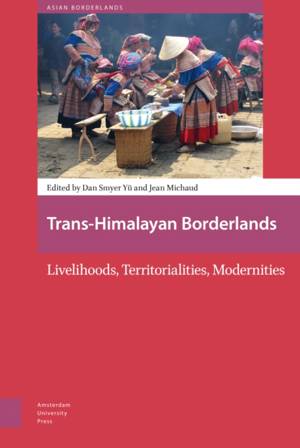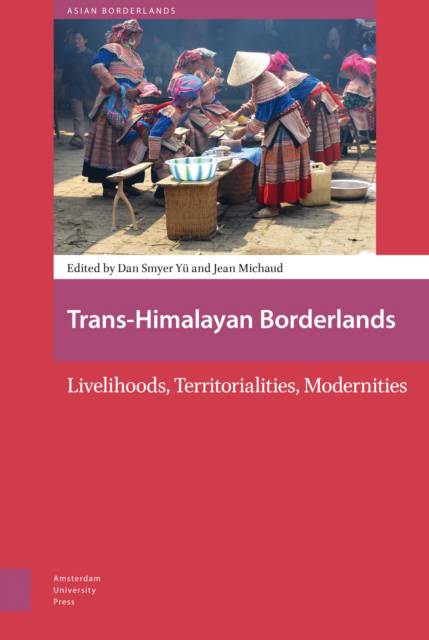
- Afhalen na 1 uur in een winkel met voorraad
- Gratis thuislevering in België vanaf € 30
- Ruim aanbod met 7 miljoen producten
- Afhalen na 1 uur in een winkel met voorraad
- Gratis thuislevering in België vanaf € 30
- Ruim aanbod met 7 miljoen producten
Zoeken
€ 168,95
+ 337 punten
Omschrijving
The societies in the Himalayan borderlands have undergone wide-ranging transformations, as the territorial reconfiguration of modern nation-states since the mid-twentieth century and the presently increasing trans-Himalayan movements of people, goods, and capital reshape the livelihoods of communities, pulling them into global trends of modernization and regional discourses of national belonging. This book explores the changes to native senses of place, the conception of border - simultaneously as limitations and opportunities - and what the authors call "affective boundaries," "livelihood reconstruction," and "trans-Himalayan modernities." It addresses changing social, political, and environmental conditions that acknowledge growing external connectivity even as it emphasizes the importance of place.
Specificaties
Betrokkenen
- Auteur(s):
- Uitgeverij:
Inhoud
- Aantal bladzijden:
- 310
- Taal:
- Engels
- Reeks:
Eigenschappen
- Productcode (EAN):
- 9789462981928
- Verschijningsdatum:
- 2/10/2017
- Uitvoering:
- Hardcover
- Formaat:
- Genaaid
- Afmetingen:
- 155 mm x 236 mm
- Gewicht:
- 635 g

Alleen bij Standaard Boekhandel
+ 337 punten op je klantenkaart van Standaard Boekhandel
Beoordelingen
We publiceren alleen reviews die voldoen aan de voorwaarden voor reviews. Bekijk onze voorwaarden voor reviews.











